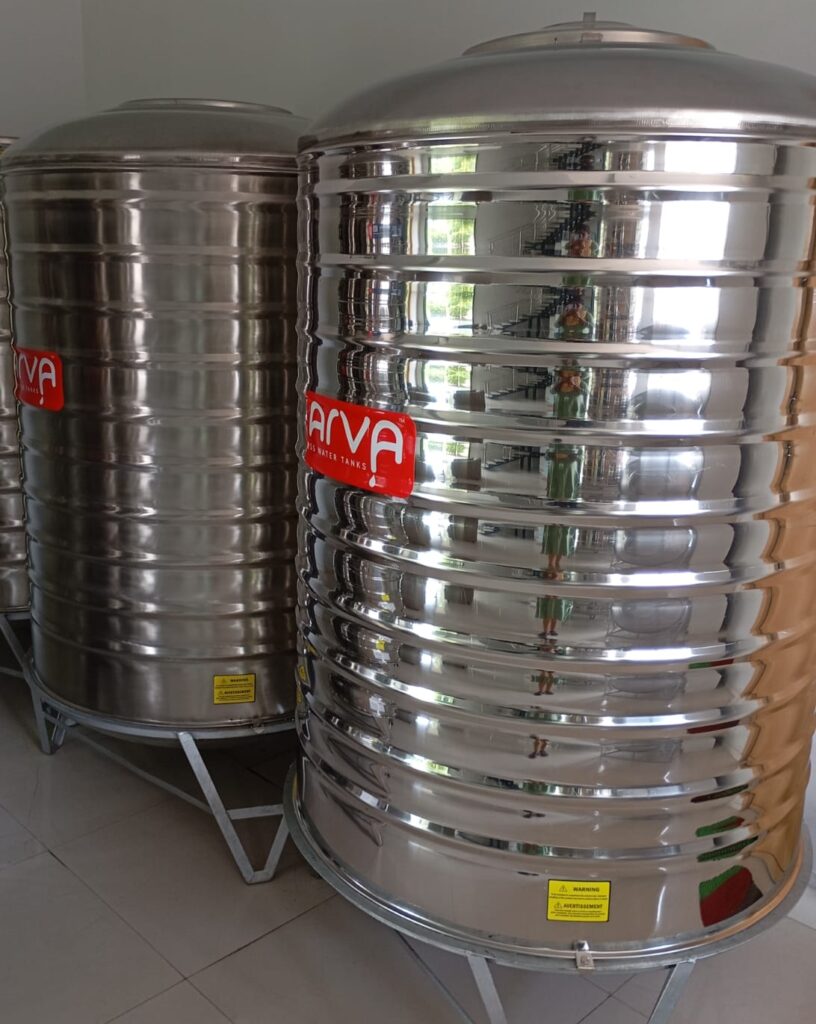
The beverage industry, particularly breweries, has thrived due to advances in technology and the adoption of efficient equipment. Among these, stainless steel tanks stand out as a pivotal innovation. From fermentation to storage, stainless steel tanks provide numerous advantages that contribute to quality control, operational efficiency, and sustainability. Below, we explore how stainless steel tanks have become indispensable for breweries and beverage companies.
Durability and Longevity
Stainless steel tanks are renowned for their durability, which is a critical factor in industrial operations. Their resistance to corrosion, wear, and extreme temperatures ensures longevity, even under rigorous use. This characteristic makes stainless steel tanks highly cost-effective, as they require fewer replacements or repairs over time.
For breweries and beverage companies, durability translates into consistent performance during processes such as fermentation, carbonation, and liquid storage. These tanks can endure years of usage without compromising the integrity of the beverages, allowing companies to maintain high production standards.
Hygienic Properties
One of the most significant benefits of stainless steel tanks is their hygienic properties. The smooth, non-porous surface of stainless steel resists the accumulation of bacteria, mold, and contaminants, ensuring that the beverages remain uncontaminated. This feature is especially critical in industries where cleanliness and food safety are paramount.
Additionally, stainless steel tanks are easy to clean and sanitize, which is essential in breweries. Maintaining sterile conditions during fermentation and storage helps breweries meet stringent health regulations and produce beverages of exceptional quality.
Preservation of Flavor
Stainless steel tanks play a key role in preserving the flavor profiles of beverages. Unlike other materials, stainless steel does not react with ingredients or alter the taste of the liquid. This inert nature is particularly important for alcoholic beverages, where fermentation processes can be sensitive to environmental factors.
Breweries benefit from the ability to control the brewing conditions in stainless steel tanks, ensuring that their beers maintain consistency in taste and texture. Similarly, other beverage companies, such as wineries or juice manufacturers, rely on these tanks to preserve the natural flavor of their products.
Customizability and Versatility
The versatility of stainless steel tanks is another advantage for breweries and beverage companies. These tanks can be customized to suit specific production requirements, whether it’s fermentation, mixing, or storage. Available in various sizes and configurations, stainless steel tanks cater to small-scale craft breweries as well as large industrial beverage facilities.
Moreover, stainless steel tanks can be equipped with features such as temperature control systems, pressure valves, and agitation mechanisms, enabling companies to tailor their operations and achieve optimal results. This adaptability makes stainless steel tanks an invaluable asset to diverse beverage manufacturers.
Sustainability and Environmental Benefits
Sustainability is a growing concern for industries worldwide, including breweries and beverage companies. Stainless steel tanks align with eco-friendly practices as they are recyclable and have a long lifespan, reducing the need for constant replacement and waste generation.
Additionally, stainless steel tanks contribute to efficient energy usage. Their ability to maintain consistent temperatures during brewing and storage minimizes energy consumption, helping companies lower their environmental footprint while reducing operational costs.
Improved Efficiency and Productivity
In fast-paced production environments, efficiency is key to meeting consumer demand. Stainless steel tanks enhance productivity by streamlining processes and ensuring reliability. For example, automated systems integrated with these tanks can monitor fermentation conditions, reducing the need for manual oversight and minimizing errors.
This efficiency allows breweries and beverage companies to scale their operations effectively without compromising product quality. The seamless functionality of stainless steel tanks helps businesses meet deadlines, improve output, and remain competitive in the market.
Conclusion
Stainless steel tanks have revolutionized the way breweries and beverage companies operate, offering unmatched durability, hygiene, and versatility. Their ability to preserve flavors, enhance efficiency, and promote sustainability makes them an essential investment for any beverage manufacturer. As the industry continues to evolve, stainless steel tanks will remain at the forefront of innovation, enabling companies to produce high-quality products while embracing sustainable practices. By integrating stainless steel tanks into their processes, breweries and beverage companies are well-equipped to thrive in an increasingly competitive and environmentally conscious landscape.


